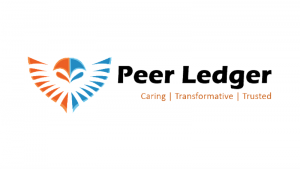
Peer Ledger focuses on blockchain technology to help organisations increase trust in their governance of economic, environmental and social factors (EESG) in supply chain operations. As Chief Executive Officer of Peer Ledger, Dawn Jutla, explains: “Consumers’ desire for responsibly sourced goods is a major trend that progressive companies are addressing today to acquire and retain customers, and to increase brand loyalty.”

The need and precious metals
Eight out of ten consumer goods companies do not know whether they have conflict minerals in their supply chains. Hence MIMOSI. It offers a tool for companies to ensure their materials are responsibly sourced.
Peer Ledger’s immediate focus is in the supply of gold and other precious metals (from mine to retail). The intention is to provide a comprehensive and inclusive solution for optimal management of global supply chain risks to:
- brands
- banks
- mints
- jewelers
- automotive
- aerospace
- refiners
- mining companies
- governments.
PAMP, a bullion brand and a trusted refiner and fabricator of precious metals, has integrated the MIMOSI Responsible Sourcing APIs to augment its precious metals trading technologies. This addition of the blockchain model heightens trust for responsible sourcing in the backend of its business. In addition, MIMOSI blockchain enables auditors and regulators to:
- verify responsible sourcing practices more cost-effectively
- increase the integrity of the data.
Moreover, PAMP’s customers will be able to securely obtain both provenance and authentication information. This will come by scanning a precious metal product with its (PAMP’s) VERISCAN iPhone app. In effect, PAMP’s adoption of MIMOSI will:
- ensure that precious metal supply chains are free of counterfeit materials
- enable stakeholders to assure themselves about the provenance of precious metals at each step of the supply chain.
Food industry
Peer Ledger’s second target market is the food Industry. This includes:
- farms
- ingredient suppliers
- processors
- manufacturers
- wholesalers
- grocery retailers.
MIMOSI can prevent food fraud, increase safety and prove quality. It provides internal business unit-level tracking as well as inter-company tracking, providing highly granular tracing and ecosystem mapping. Furthermore, consumers may obtain food quality information instantly from MIMOSI-participant companies.
The Peer Ledger MIMOSI platform
The MIMOSI platform is available for use by all industries. This comes after two years of development and testing with industry, sustainability and supply chain professionals. The MIMOSI Blockchain SaaS for Responsible Sourcing enables clients from industries committing to responsible sourcing to possess a single source of truth for provenance information. Participants obtain a trace of tracked items specifically supporting the following business functionalities:
- preventing materials fraud: dilution and misrepresentation are two of the most common methods of mineral, food or any materials fraud; with MIMOSI’s provenance-keeping, physically tagged (e.g., IoT sensor, NFC, RFID, barcodes, QRcodes) trace transactions – such as registration, shipping, change of custody and/or ownership, and transformation transactions – and mass-balancing functionality detect and prevent fake materials from being introduced in a supply chain
- traces for ensuring safety: although safety is aided by removing materials fraud, MIMOSI also offers the capability to trace forward and backward in four ways across supply chain entities; speedy tracing when transparency is needed means ‘recall management’ can happen much faster than currently possible (within minutes or hours versus
- immutable quality attributes: items’ quality attributes – such as descriptive characteristics (e.g., assay, firmness), remaining shelf life, time-since-produced or harvested, dwell-time and freshness – are recorded across the supply chain
- proofs of origin and genuineness: brands, their suppliers and manufacturers and customers can prove and trust the origin and genuineness of a product via MIMOSI
- proofs of workers’ conditions and environmental treatments: participants can use MIMOSI to record evidence of working hours, emergency preparedness policies, abuse-free workplace policies, environmental treatments and more
- preventing documents fraud: MIMOSI enables supply chain customers to make any of business documents immutable
- support of data interoperability standards across industries: MIMOSI supports GS1 standards for the food industry and LBMA/RMI emerging data standards for the minerals industry; with a flexible data and architecture design, Peer Ledger believes MIMOSI can extended to support any interoperability standard for any industry wishing to do track-and-trace.
- MIMOSI enables companies to:
- keep their identity private from all but their one-up-and-down while still providing tracing and provenance information to all sub-tiers
- define user roles and set access control permissions to users easily and flexibly.
MIMOSI runs as private and permissioned distributed ledgers on Hyperledger Fabric, the open source blockchain framework. Peer Ledger hosts MIMOSI on Amazon Web Services to ensure enterprise-class scalability, reliability and security.
Enterprise Times: what does this mean
The notion of using blockchain for, for example, food security is not new (see Carrefour/IBM or Kelly Products, covered previously in Enterprise Times). Peer Ledger would seem to have expanded the reach by creating a general purpose blockchain platform hosted on a widely available cloud service, thus ensuring broad accessibility. This gives all the benefits of a cloud-based solution, including minimising capital commitment, minimal administration and low cost of ownership.
For subscribers, much of the attraction may lie in the ability to select from four MIMOSI Software-as-a-Service options with a pay-per-use pricing model according to how many items they choose to track-and-trace. This means organisations can add responsible sourcing to existing platforms. Participants can subscribe to lower tiers or upgrade as usage increases or falls.

























